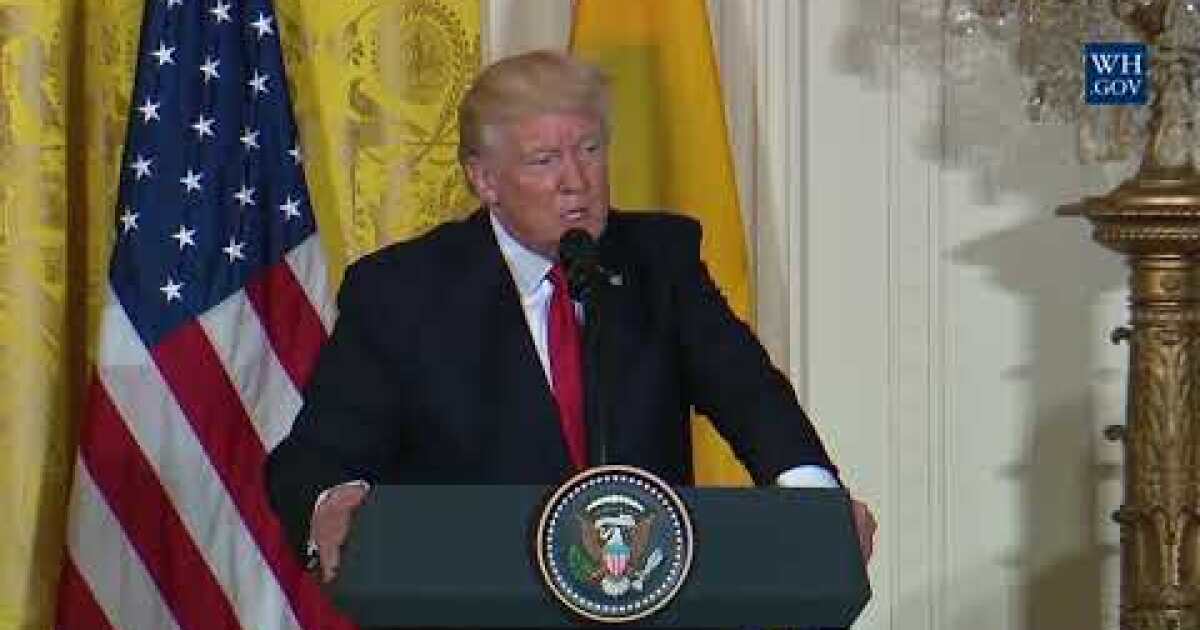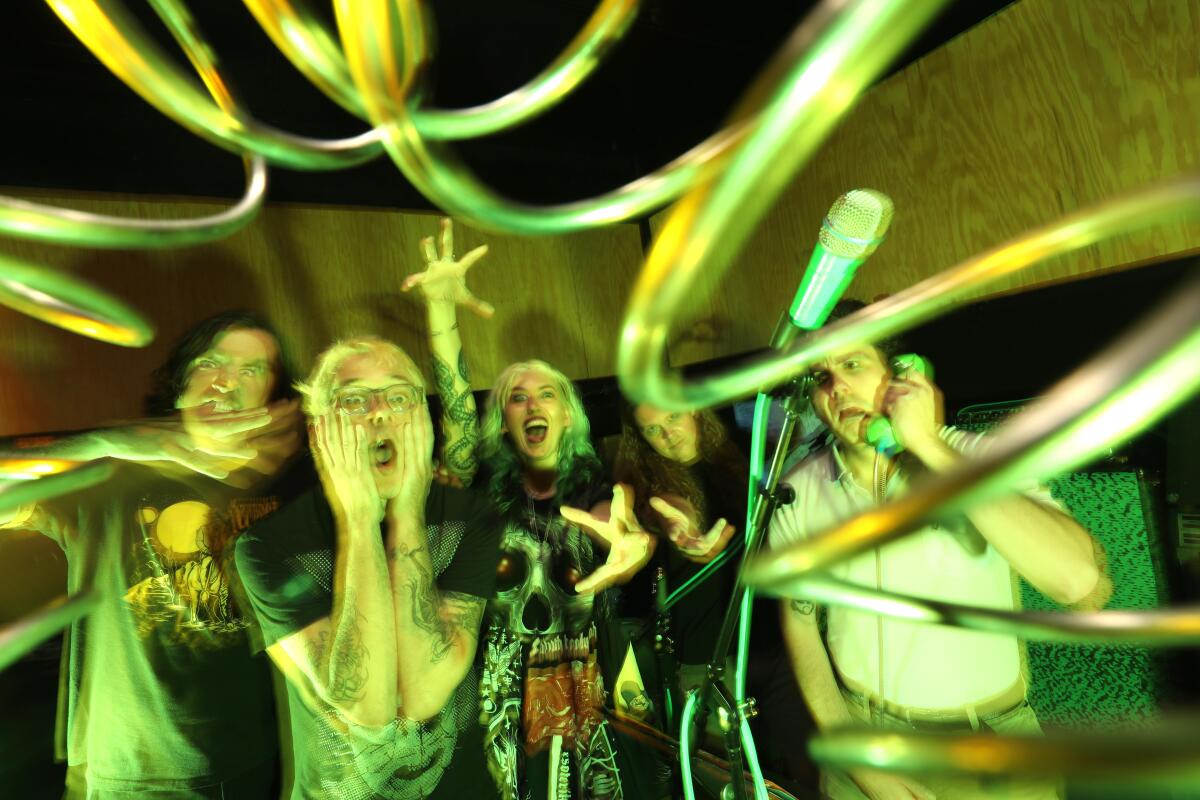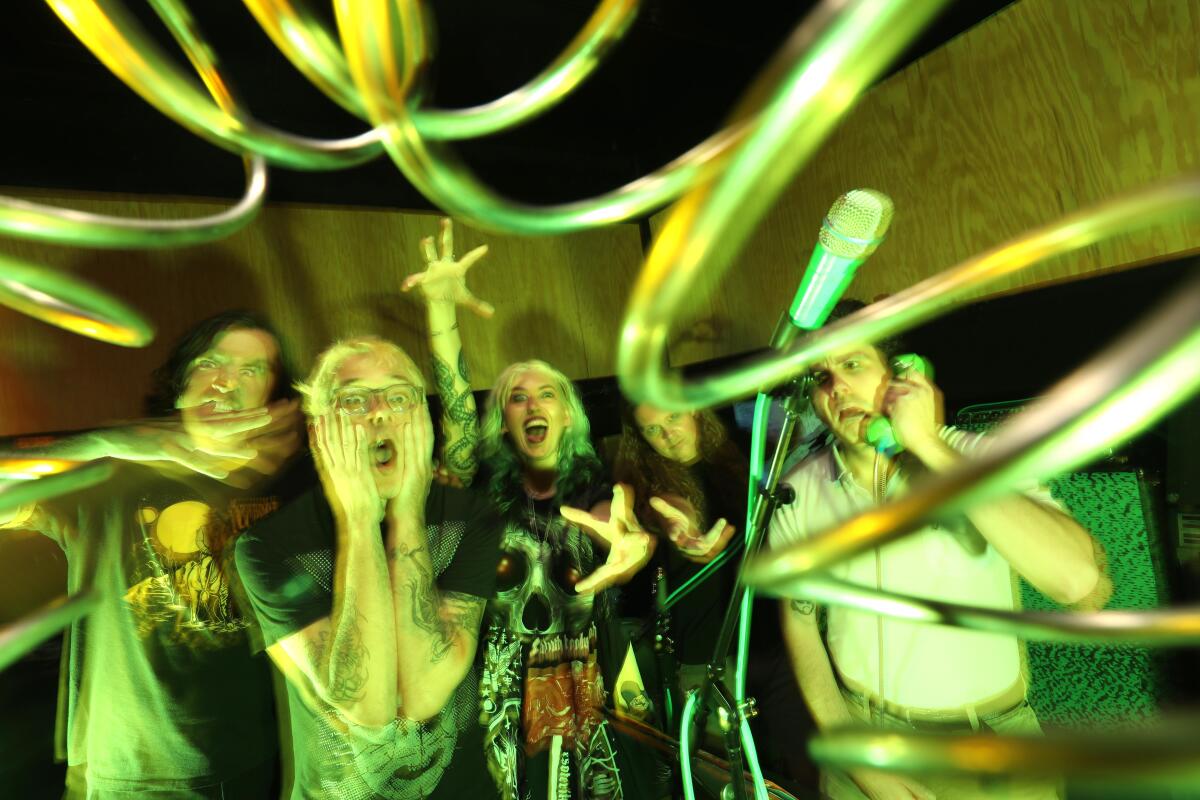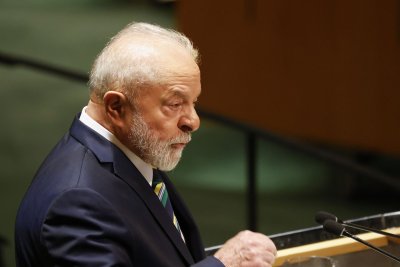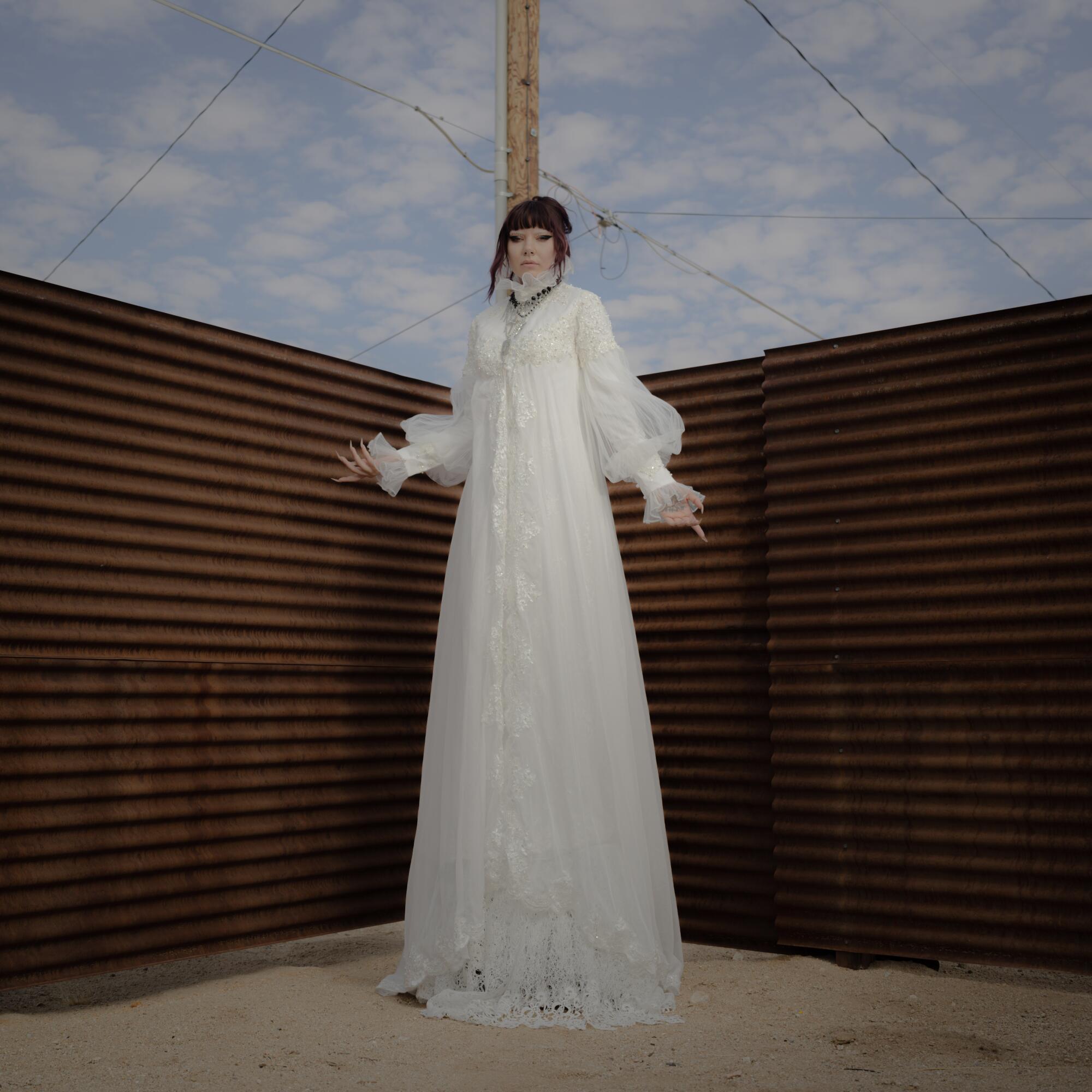Trump lashes out, calls Russia investigation a ‘witch hunt’
Reporting from Washington — President Trump could contain his anger for only so long — about 14 hours — before lashing out on Twitter on Thursday to protest “the single greatest witch hunt of a politician in American history!”
But in attacking Wednesday’s appointment of former FBI Director Robert S. Mueller III as a special counsel to head the investigation into Russian meddling in the 2016 election and any role that Trump’s associates may have played, the president risks alienating potential supporters in his own party.
He could create an enemy out of a prosecutor who commands both a vast army of investigators and bipartisan respect.
And, yet again, he has undercut advice from top Republicans inside and outside the White House who say that an independent investigation could help Trump. If only he could control his evident anxiety about the case, the secrecy of a special counsel investigation could keep the story out of the daily headlines, they say. And Mueller’s credibility could provide exoneration for the president and his aides if the investigation finds that they have done nothing wrong.
The mix of grievance, hyperbole and defiance in Trump’s response, however, was hardly surprising at this point in his public life. His statements fit a pattern he long ago established of fighting back against enemies real or perceived and of seldom letting go of a grudge.
In a second tweet, Trump complained that President Obama and Hillary Clinton had not been subjected to the same treatment.
“With all of the illegal acts that took place in the Clinton campaign & Obama Administration, there was never a special counsel appointed!” he wrote. He initially misspelled counsel as “councel” before sending a corrected tweet.
Trump did not specify what he meant by illegal acts.
During a lunch with television anchors ahead of a nine-day foreign trip that is scheduled to begin Friday, Trump continued to criticize the special counsel appointment.
He called the investigation “a pure excuse for the Democrats” for losing the election. “It hurts our country terribly,” he said. “It shows we’re a divided, mixed-up, not unified country.”
At a joint news conference later in the day with the visiting president of Colombia, Trump took a slightly more muted tone.
“I respect the decision” to appoint Mueller, he said, before adding that he believed the “entire thing” was “a witch hunt.”
“There’s no collusion between, certainly, myself and my campaign — but I can always speak for myself — and the Russians — zero,” he said. He appeared to mean that he could “only” speak for himself.
“There is no collusion,” he repeated several times.
He also emphatically said, “No, no,” when asked whether he had urged then-FBI Director James B. Comey to back off an investigation of Michael Flynn, Trump’s former national security advisor. Comey, in a memo reportedly written for his files, said that Trump had made such a request at a meeting in the Oval Office on Feb. 14.
Trump’s lashing out is not unique. President Clinton, for example, was known to rage about what he saw as the unfairness of the long-running special prosecutor investigations his administration faced. Clinton, however, kept his red-faced fury to private conversations, and, of course, Twitter didn’t exist.
But neither is Trump’s very public display of anger a completely irrational move. Trump and some of his advisors clearly see anger over the investigation as a way to unite his core supporters against a common enemy at a time when at least some of his voters have begun showing signs, in polls, of wavering.
In fundraising emails Thursday, Trump boasted that he had set a new postelection high for his campaign in online money raising despite “unrelenting and unprecedented political attacks against a sitting president” by the media and political establishment.
“The American people sent President Trump to Washington not to get along with the establishment but to repair the damage done to our economy and our prestige around the world by their policies and practices,” he wrote.
Trump’s instinct to battle, however, and the political desire to use the fight to unite his supporters is at odds with the strategy that many of his advisors would prefer — one closer to the approach other administrations have used of trying to insulate the White House’s daily functions from scandal.
Clinton’s press office hired an outside agency to handle questions about the investigation that eventually led to his impeachment over the Monica Lewinsky affair. Although it did not end the saga for him, it did take some of the pressure off his White House staff, allowing them to speak more about policy during public briefings.
Wednesday night, the White House seemed to be inching toward a similar goal, issuing a statement that offered muted approval of the investigation and urged a speedy conclusion.
Congressional Republican leaders appeared to be following that playbook Thursday.
After Deputy Atty. Gen. Rod Rosenstein briefed senators on the investigation, several Republican lawmakers suggested that with Mueller in place, the time had come for congressional committees to scale back their investigations, which involve highly public hearings, and allow the special counsel to carry out his probe, which can be expected to offer fewer headlines until it reaches a conclusion.
The appointment of Mueller “has really limited what Congress can do,” said Sen. Lindsey Graham (R-S.C.). “This was a counter-intelligence investigation. It is now a criminal investigation.”
Trump’s advisors have been frustrated that he has so often failed to stick to such strategies.
“Clearly they’re not on the same page, but I don’t know why,” said Barry Bennett, a former advisor to Trump’s campaign who has friends serving in the White House.
Bennett said Trump continues to rely mostly on advice from “his New York buddies” — friends closer to his age and wealth whom he respects more, but who lack experience in politics and communications. Like others, Bennett expects Trump to shake up his staff, dispensing with Chief of Staff Reince Priebus, upon his return from the foreign trip.
Anxiety over a potential staff shakeup, Bennett said, has left those inside with even less clout to advise the president.
“It’s a combination of his frustration and people’s exhaustion,” he said.
But another person in close contact with White House staff, who requested anonymity to discuss the issue, said many of Trump’s aides remain devoted and united behind the task of defending him. The stress staffers are feeling is endemic to any White House, the person said.
“Anybody that’s surprised by” Trump’s disdain for listening to his press team and political advisors “should have been paying attention to the campaign,” the person said. “To think it would be any different in the White House makes you dumb.”
With the rush of events at home, Trump’s overseas trip now promises to be even more fraught for the new president.
Trump would like the trip to be shorter, a White House official said. His son-in-law and close advisor, Jared Kushner, orchestrated the stops in Saudi Arabia and Israel, which lengthened a trip that originally was designed to go only to Italy and NATO headquarters in Brussels.
Trump liked the broader mission, but being away from a familiar bed for more than a week is difficult for him. He is often teased by his children as being a “homebody,” the official said.
One person who will be staying behind is Trump’s strategic advisor Stephen K. Bannon. He has stepped back from foreign policy in the last two months as Kushner showed he had more influence with the president in that arena.
The last several days offered a preview of how the current distractions, combined with Trump’s disdain for scripted protocols, could leave the president ill-prepared for his debut abroad.
On Tuesday, Trump repeatedly mispronounced the name of Recep Tayyip Erdogan as the Turkish president stood beside him. He also appeared bored or distracted when Erdogan spoke, coming to life when the Turkish president injected some fulsome praise for Trump and his election victory.
On Thursday, he appeared to struggle to keep focus while Colombia’s president, Juan Manuel Santos, was speaking.
Over the last two weeks, Trump’s official schedule was relatively light as aides made time for him to cram on geopolitics for a trip that will take him from the complexities of the Middle East to summit meetings with skeptical-to-hostile leaders in Europe.
Presidents usually sit through “pre-trip briefings galore” before foreign visits, said Michael Allen, who was an advisor to President George W. Bush.
Before Bush traveled, his White House chief of staff would carve out extensive time for senior directors on the National Security Council and other experts to brief the president. Allen said the briefings could get quite precise: “This is what you will see, what they will say, what you might discuss, what you need to know.”
But with Trump, said a Republican who formerly worked in the White House, “the trouble will be if he goes off script. Trump can’t control himself.”
At the same time, the official said, everywhere “he will be treated to respect and pageantry. Trump will eat of lot of that up.”
Twitter: @noahbierman
Times staff writer Michael Memoli contributed to this article
ALSO:
Arrests on civil immigration charges go up 38% in the first 100 days since Trump’s executive order
Meet Robert Mueller, the former San Francisco lawyer chosen to lead the Trump-Russia investigation
Rod Rosenstein heads to Capitol Hill after appointing special counsel
UPDATES:
2:45 p.m.: This article was updated with quotes from President Trump’s news conference and other additional details.
This article was first published at 7:30 a.m.
